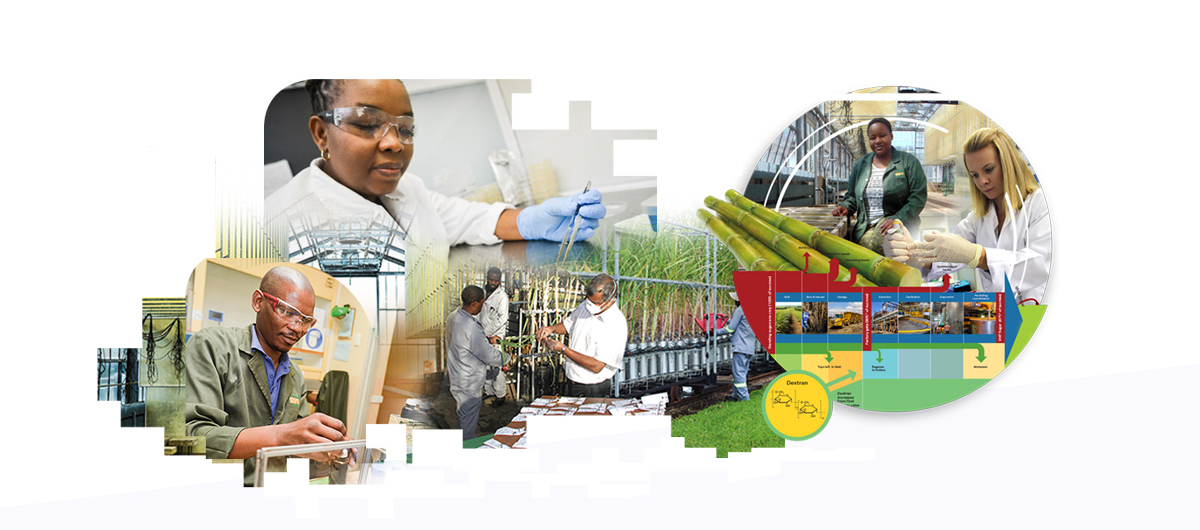The multifaceted contribution of skills development, training, and education by the South African sugar industry includes: direct skills development, specific training courses, bridging courses, agricultural and industrial training, the provision of bursaries, funding of programs that improve the quality of education in rural primary and high schools, provision of material on nutrition, and opportunities in the field of science and technology.
Divisions of the South African Sugar Association delivering on the objective of strengthening skills includes the South African Sugarcane Research Institute, the Shukela Training Centre, and the Nutrition Department. Other establishments that contribute to this objective include The Sugar Industry Trust Fund for Education, and the Sugar Milling Research Institute.
Developing the National Skills Base
SASA’s contribution to strengthening skills includes training courses offered at the Shukela Training Centre and opportunities in the field of science and technology.
Human resource development is a major area of social investment for the sugar industry. Numerous initiatives are maintained by the industry to promote human resource development, and are primarily focused on promoting Broad-Based Black Economic Empowerment. The initiatives are multidimensional and a brief overview is given below.
Ownership Profile – The industry’s focus includes the progressing of transformation through the ownership profile of the sugar industry through land reform as well as initiatives by the milling sector which has resulted in increased black ownership of sugar manufacturing capacity, for example, the Gledhow Sugar Company (PTY) Limited has 34.9% black ownership.
Support Services – The industry has a long history of promoting and supporting small-scale farmers on tribal land. Building on the extensive infrastructure and network of the growers and millers, the industry has been able to engage effectively in ongoing delivery related projects. Mentorship programmes focusing on business skills and grower support extension services are deployed to support cane growing activities. The South African Sugar Association provides in-field training to small-scale growers, offers certified courses in sugarcane agriculture and provides technology transfer and extension services.
Employment Equity
All participants in the industry promote compliance with the Employment Equity Act, and have integrated Employment Equity and Skills Development Plans in place that are monitored and updated annually. These have targets for recruiting, developing and promoting employees from designated groups.
Enterprise Development – The industry is involved in an array of projects that seek to accelerate access to employment opportunities and increase participation in the economy. The industry partners with organisations to contribute to economic growth.
Educational Support – The Sugar Industry Trust Fund for Education (SITFE) was launched in 1965 as a private sector initiative and is regarded as one of the oldest Trust Funds in South Africa. The mission of SITFE is to support, promote and advance sustainable, quality education in South African sugarcane growing areas.
SITFE supports a wide range of programmes ranging from the school support programme; study assistance programme; in-whole school support programme; early childhood development programme; and an education centre development programme. These programmes are implemented in order to improve the quality of teaching and learning, educators and communities within the sugarcane growing communities.
Technology Exchange – The South African Sugarcane Research Institute contributes to the profitability and sustainability of the industry whilst encouraging environmentally responsible farming practices. Outputs from the research programmes are transformed into practical knowledge and technology products. Training and development takes place through courses and a series of interventions by a network of Extension Specialists.

